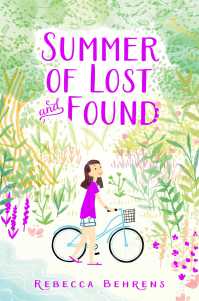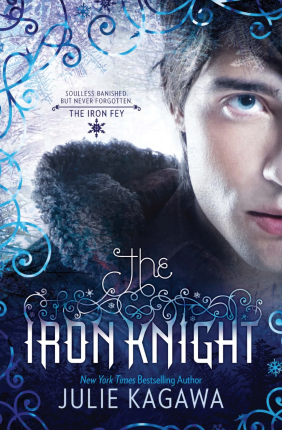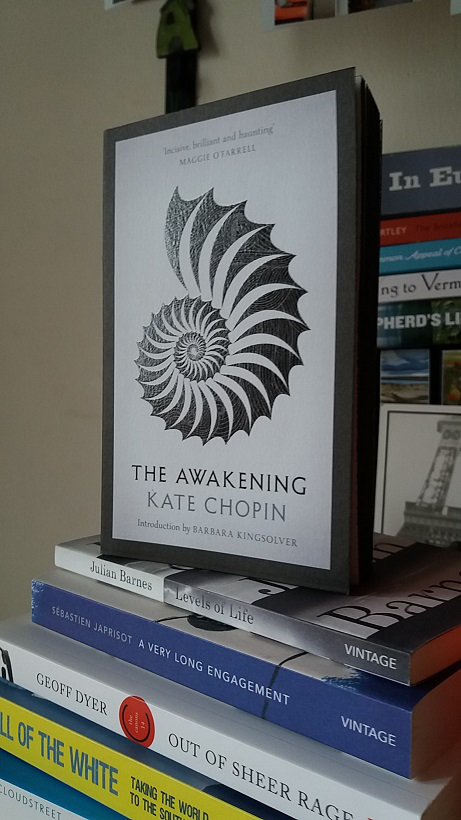
//published 2016//
I really wanted to like this children’s book (I mean, look at that gorgeous cover!), but in the end it was just a middling read for me, and not one that I’ll ever bother with again.
The story focuses on Nell, whose father is an author and whose mother is a botanist. At the beginning of the tale, Nell’s father disappears – except he doesn’t really disappear; he’s left, and Nell’s mother is super cagey about where he is and when/if he is coming back. So this means that instead of spending the summer at home in New York City, Nell has to go with her mom to do some research on Roanoke Island in North Carolina. Nell isn’t super happy about giving up all the plans she had for hanging out with her best friend, but slowly finds herself drawn into the small town life on the island, as her mom researches some kind of really old grapevine that may possibly have been on the island at the time of the arrival of the original British colonists (the ones who disappeared). Nell becomes intrigued by the missing colonists and begins trying to do some research with the aid of a boy, Ambrose, she met at one of the historical parks. She also meets a girl about her own age whom she immediately dislikes, because the other girl, Lila, is super bossy and annoying. Throughout the story there are also journal entries written by a boy from the lost colony.
Somehow, though, this book just wasn’t magical. Children’s books especially have that potential (and it has nothing to do with whether or not there is actual magic in the story – its the essence of the story itself that is or isn’t magical), and this was just fell flat. Part of it was the very muddy historical fiction aspect – for instance, in the end, Nell and her friends solve the mystery of the lost colony… except no one has ever really solved that, and it felt like if I was just a kid reading this book I would get to the end and assume that maybe that mystery had really been solved in real life? I don’t know, it just felt strange that that was the way she decided to go, having a couple of kids solve a historical mystery that’s been around a couple centuries.
The whole situation with Nell’s dad felt extremely contrived, and it also seemed unnatural that Nell wouldn’t have actually confronted at least one of her parents way earlier in the story. If Nell’s mom felt like she needed to ‘take a break’ from Nell’s dad, what was the point of sending him away like two days before she’s leaving for the summer anyway? It already felt like they were going to take a break, so the whole ‘disappearance’ was really just a way of making Nell have to go with her mom.
A lot of the story felt that way, like Behrens had an idea of where she wanted the story to go, but had to be rather heavy-handed in making it happen.
I appreciated that Behrens was trying to make Nell a sort of modern-day girl, and I didn’t mind the fact that some of the story was her texting or emailing people. However, it seemed odd to have her texting during actual face-to-face conversations with other people. Like when she meets Lila, they’re sitting in front of the bookstore talking, and Nell literally starts texting her best friend in the middle of the conversation, things like, “Met this girl in the bookstore – might be kind of cool” or “Nevermind. The girl’s kind of full of herself.” I think Behrens was trying to make sure we knew about Nell’s feelings towards Lila, but the texting felt like an extremely awkward way to express that. Like, is she texting while Lila is still talking? Does Lila pause the conversation so Nell can pull out her phone and send a message to someone else? It was weird, and it happened on more than one occasion.
Finally, and this is a spoiler, so don’t read this paragraph if you want to read the book (or maybe do, because this was something that annoyed me throughout the whole book and I actually skipped to the end to find out if I was right, which is something I pretty much never do) – Ambrose is a ghost!? And it’s just kind of like… oh, okay, he’s a ghost! So now everything makes sense. It really, really felt like a cop-out, and I’m not really sure if like Behrens herself just believes in ghosts so presenting one as a reasonable solution is a sensible conclusion for her? Because legit everyone, including adults, just say “Ohhhh, he’s a ghost!” and then that’s about it. Also, I was hoping that there would be some good reason for why Nell can see/talk with Ambrose but other people can’t – like it would have made so much sense for it turn out that she’s a distant relative or something but… nothing. No explanation. Apparently Ambrose just liked the looks of her…???
Overall, there were just too many jumps/gaps in logic for me to get on board with this book. I realize it’s children’s literature, but I think it’s just as important for children’s books to make sense (within their own world – I realize the rules of Narnia are different from the rules of The Secret Garden which are different from the rules in Babe: The Gallant Pig but each book still makes sense within its own context, and that’s the key) as it is for adult books, because having those rules flow together is what makes it easy to immerse oneself into the story. There were way too many times that I felt jarred out of the story by a ?!??! moment.
A 3/5 for a pleasant read, but Summer of Lost and Found isn’t a book I’ll be rereading.
Advertisements Share this:




